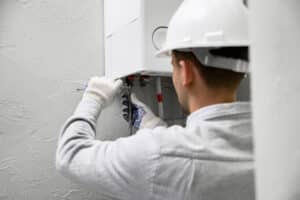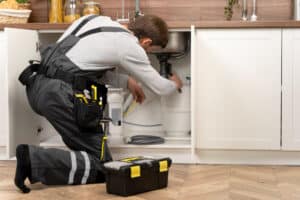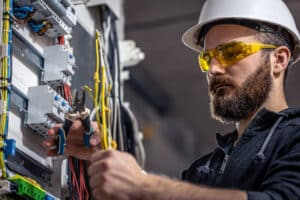Top 5 Tools Every Plumber Should Have in Their Toolbox
Introduction: Being a plumber requires a unique set of skills,...
Electricity is an indispensable part of modern living, powering our homes and enhancing our lifestyles. However, with this convenience comes the responsibility of ensuring electrical safety. In this comprehensive guide, we’ll explore the fundamentals of electrical safety to help you safeguard your home and protect your loved ones from potential hazards.
Understanding Electrical Hazards: Electricity, while essential, poses inherent risks if not handled with care. Understanding common electrical hazards is the first step towards creating a safer home environment.
Tips for Electrical Safety at Home:
Educating Your Family: Ensuring electrical safety is a collaborative effort. Educate your family members about the importance of electrical safety and establish household rules to minimize risks.
Conclusion: Electrical safety is a fundamental aspect of maintaining a secure and comfortable home. By being proactive, conducting regular inspections, and educating your family, you can significantly reduce the risks associated with electricity. Prioritize electrical safety to create a home environment where you can enjoy the benefits of modern living without compromising on the well-being of your loved ones. Stay informed, stay safe.

Introduction: Being a plumber requires a unique set of skills,...

Introduction: As technology advances and our reliance on electronic devices...

Introduction: Embarking on do-it-yourself (DIY) plumbing projects can be a...

Tankless water heaters, often heralded as the future of home...

Green Plumbing: Sustainable Practices for a Greener Home In the...

Ensuring the safety and reliability of your home’s electrical system...